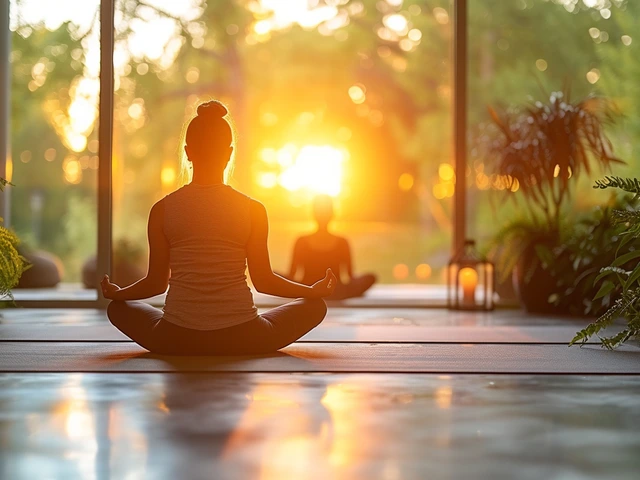Benefits of Meditation: Real Gains You Can Feel
Meditation isn't magic, but it changes real things in your body and brain. People who meditate regularly report less anxiety, better sleep, and clearer focus. Studies show even short daily sessions can lower stress hormones, improve heart rate variability, and reduce perceived pain. That makes meditation useful on its own and as a complement to therapies like massage, biofeedback, or physical rehab.
What meditation does and who it helps
When you sit quietly and focus on breath or a simple anchor, your nervous system shifts out of constant fight-or-flight. Brain scans show reduced activity in the "me"-center that fuels rumination, and increased connectivity in areas tied to attention. Practically, that means you worry less about small problems, settle faster at night, and handle setbacks without spiraling. Meditation also helps with pain by changing how the brain interprets signals, so people often feel less intensity even if the source of pain remains. Meditation works well alongside deep breathing, progressive muscle relaxation, or biofeedback. For example, use a five-minute breathing practice before a massage to lower muscle tension and improve outcomes. If you struggle with sleep, follow a short body-scan meditation to relax each muscle group. Athletes can add meditation between training sessions to sharpen focus and speed recovery. Nutrition, sleep habits, and movement amplify meditation’s benefits—think of it as a multiplier, not a lone hero.
How to start, stick with it, and quick practice
Begin with tiny, doable sessions. Try one to three minutes right after brushing your teeth. Set a kitchen timer and sit upright—no special cushion needed. Focus on the breath: count four in, four out. When your mind wanders, gently bring it back without judging. That’s all practice is. If formal sitting feels hard, try a short walking meditation: notice your footfalls, the weight shift, the air on your skin. Apps, guided tracks, or simple timers help at first, but the real goal is doing it regularly, not perfectly.
If your mind races, try labeling thoughts: "thinking," "planning," "remembering." That simple naming reduces their pull. If you feel bored, try switching to an active form like counting breaths or doing mindful chores. If time is the issue, remember two minutes daily beats nothing. Track progress by noting one small change each week—less irritability, faster sleep, clearer focus. Sit tall for 60 seconds. Close your eyes and breathe normally. Count each exhale up to five, then start over. If a thought pops up, notice it and return to counting. After one minute, open your eyes and note how your body feels. If you own a dog, try meditating with them nearby. Their steady breathing and calm presence can deepen your focus and reduce stress for both. Short shared sessions strengthen your bond and make calming practice easier and more natural every day. Small habits add up. Do this minute daily for a month and watch how small calm moments change your day. Start small, be patient, expect measurable results in weeks.

How to Start Meditating: The Ultimate Beginner’s Guide for Calmer, Happier Living
Ready to find some peace? This beginner’s guide covers exactly how to start meditating, plus practical tips, easy methods, and useful facts for real-life mindfulness.

10 Surprising Benefits of Feldenkrais Training
Sep, 26 2023



